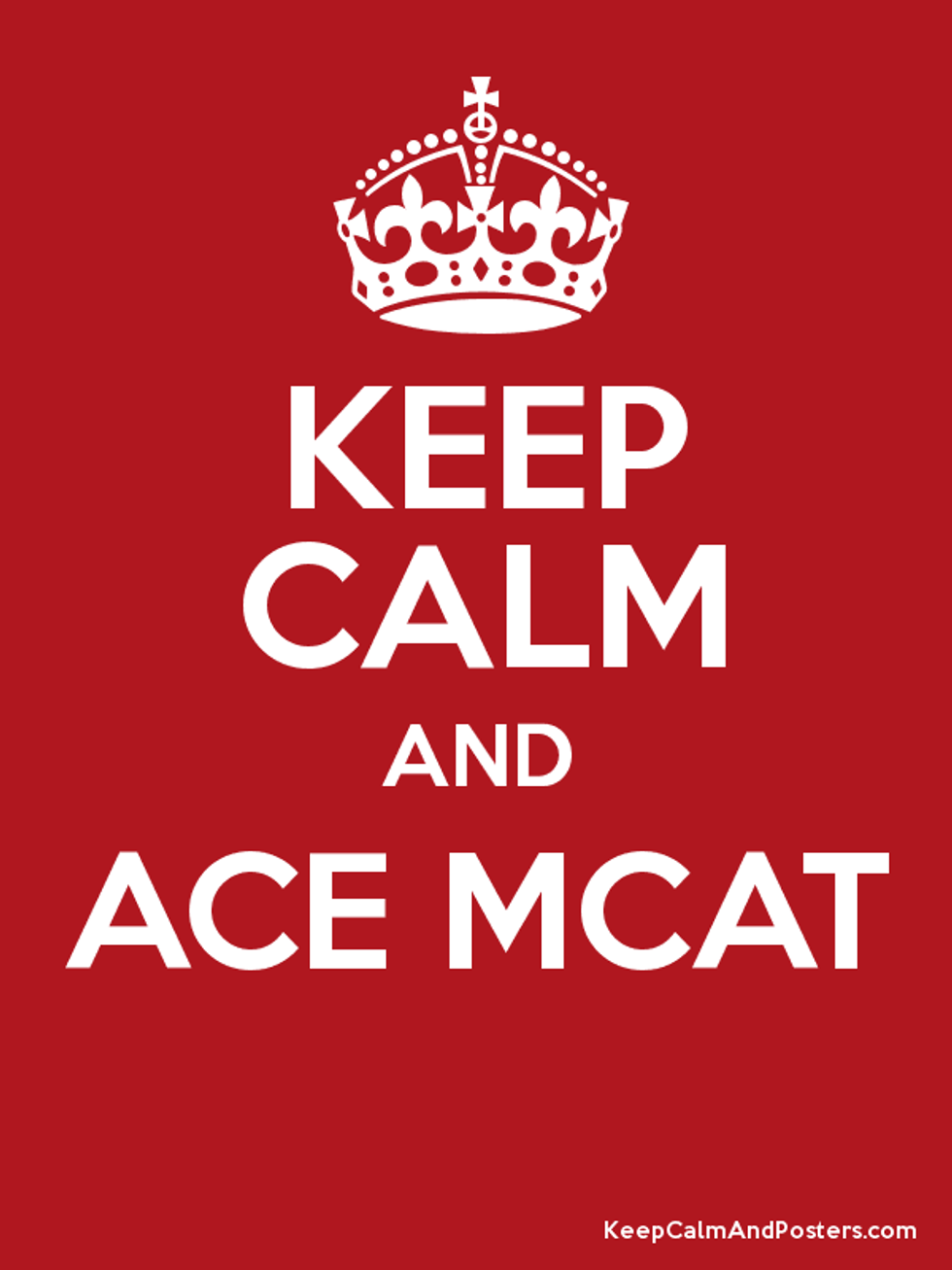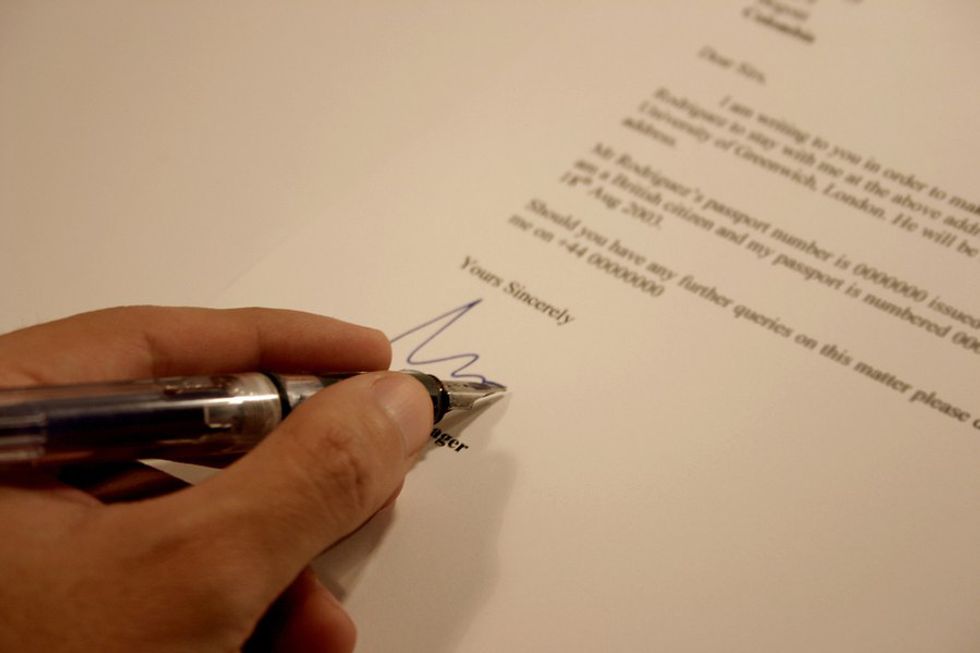Everyone knows that becoming a doctor means a lot of hard work and time in school, but most don’t actually know what that means unless they decide to pursue that path for themselves. And for someone like me that’s a first generation college student, navigating the seemingly endless requirements to becoming a doctor can seem daunting…and truth be told, I have had more than one college advisor give me advice that ended up being counter-intuitive or outdated as far as getting into medical school is concerned. So below is a list breaking down the many requirements for M.D. hopefuls (or anyone curious) as I understand and follow them.
1. Required Courses
Although you can apply to medical school with any undergraduate degree, there are some required college-level courses that all Premed students have to take:
1 year of Biology with Lab; 1 year of General Chemistry with Lab; 1 year of Organic Chemistry with Lab; 1 year of Physics with Lab; 1 year of English; 1 year of Calculus OR 1 semester of Calculus & 1 semester of Biostatistics; 1 semester Statistics (preferably Biostatistics); At least 1 semester Biochemistry
The worst part about the premed course load is the lab that is required with most of the classes. More often than not, the lab portion of class is the easier part, but labs are between 3-5 hours long and can make scheduling a nightmare (especially if you are at a small university like me). I have been taking 3 lab classes per semester since I can remember (since I'm a science major and all of my classes have labs), and the sheer time spent in a classroom each week can be draining.
Even further, within these course requirements, you have different options. Physics, for example, can be either University or College Physics. University Physics uses calculus (this is what engineers take) and College Physics is algebra based. To be prepared for the MCAT and apply to medical school, you only need College Physics. However, when admissions faculty assess medical school applicants, they take into account the degree of difficulty of the classes the applicant has taken, so taking the easy way out may not always be the right answer.
It must be noted that all schools vary a little on the official requirements and if some classes can be substituted for others. One common substitution is using any writing intensive course in place of a general college-level English class. Also, Biochemistry is not required to apply to several medical schools, but it's on the MCAT so you may as well consider it a requirement. Lastly, many schools have "recommended courses." These courses are not mandatory to apply but can certainly enhance your application. Common recommended courses:
Anatomy and Physiology I & II; Microbiology; Molecular Biology; Genetics
My last comment on the required course load part of getting into medical school has to do with selecting your undergraduate degree. I want to stress that a Premed student can literally be ANY major from music to political science. In fact, if you aren't a chemistry whiz or biology nerd, I would strongly suggest not majoring in the sciences. Major in what you have an interest in and you can pull stellar grades in. G.P.A. is huge! The average G.P.A. of most incoming medical students is 3.6, with top schools around 3.8-3.9. And now you understand why every premed student is obnoxiously obsessive about their grades.
Additionally, and this is not from experience but from extensive research, many medical schools are looking to diversify their classes. So when most premeds are biology majors, majoring in something different can help you stand out. Remember the admissions representatives are PEOPLE just like you and me, and having an interesting major will give you something different and fun to talk about. You might actually be able to educate them on something, never know!
The best advice I have regarding course load is know your strengths and take the more difficult classes when you know you can pull a good grade. It's all about standing out in a sea of qualified people, which is much easier said than done.
2. MCAT
And now the MCAT. It's the beast that inhabits the nightmares of premeds everywhere. This is the standardized entrance exam that all premeds need to take to gain admission to medical school (like the S.A.T. is used for college admissions). This is where those required courses come into play, as you will be tested on all of those subjects. Oh, and did I mention that 2015 was the first year of the new MCAT that tests for even more subjects and is almost double the time? Tested subjects on the new MCAT (Comprehensive Explanation of MCAT Subjects):
Physics; Chemistry; Organic Chemistry; Biochemistry; Biology; Psychology & Sociology
This test is supposed to predict how successful an applicant will be in medical school, but that validity is being questioned (I mean physics, come on!). However, at this time and probably for the foreseeable future, this notoriously difficult test is a mandatory step in one's quest to become a doctor. The test has 230 multiple-choice question and takes 6 hours and 15 minutes to complete (as opposed to the old MCAT that had 144 questions in 3 hours and 20 minutes). Needless to say, a good score is imperative to getting into any medical school and especially your Johns Hopkins of the world. Give yourself ample time to study, look into prep courses, and don't take it if you aren't ready. Yes, you can retake it, but who wants to sit for another 6 hours and 15 minutes, anyways.
3. Clinical Experience
So you've got the grades and the MCAT scores, you're a shoe-in for medical school, right? Wrong. That's literally only the beginning. Your grades and MCAT score are what gets the admissions committee to look at your application, the rest of the application is what gets you an interview. The biggest thing you need on your application is clinical experience. Put simply, you need to know what it's like to be a doctor and work in the medical field.
There are several ways to obtain clinical experience, and the general rule of clinical experience thumb is to have 500 hours on your application (as this minimum is when you can speak meaningfully on why you want to be a doctor). Clinical experience means having any experience interacting with patients, and there are many ways to gain this. Options to gain clinical experience include volunteering at a hospital or nursing home, shadowing physicians, or getting certified to work in some medical capacity. I've personally decided to take a C.N.A. course this week in order to gain employment in the medical field. It's going to be tough work, but I truly believe doing the work at the bottom of the totem pole will make me a better doctor in the future. So get out there and do what you can. Five hundred hours is the rule, but it's not the end all, be all either. People have gotten acceptance letters with less, and some people have been rejected with more than 500 hours of clinical on their applications.
The best advice I have is try to maneuver yourself into an experience that lets you closely observe a doctor's role in medicine. Don't go into this as just another thing on the checklist. Actually take in the experience and really imagine yourself doing this job. It's not for everyone, and there's no shame in realizing it's not for you. Because, if I'm being honest, there are much easier ways to make a living that don't include four more years of school, astronomical debt, an underpaid residency, and the stress of being a doctor. You need to have a passion for this field because that passion is the only thing that will get you through the process. If you are in it for the money, do finance! They bank!
4. Research Experience
Research experience is valued differently depending on the school you want to apply to, but some research experience should be on your application regardless. The are many ways to gain research experience, but the best way is to ask your professors if they need help on their research. Ideally, research will be in a medically related topic, but the main point is to learn about working in a lab and the thought process behind designing an experiment. My school requires all science majors to complete original research, and I took that opportunity to do something completely different from the medical field (invasive snail research). I'm confident in my choice, as I will have something interesting to talk about in the interview that the interviewer probably hasn't talked about.
5. Volunteer Activity
Every application should have volunteer experience on it. However, many people (just like with extracurriculars), go with the more is more approach. They volunteer for short amounts of time at many places. Premeds like this are usually just volunteering to have something to add to their resume, but admissions people aren't stupid. The point of volunteer work is to demonstrate genuine altruism (selflessness) because every good doctor naturally possesses this trait. So your best bet in gaining volunteer work is to pick something you are passionate about and stick with it. A lengthy commitment to a cause speaks volumes more than brief stints at a million places. Even better is if you can work your way into a leadership position.
It must be mentioned that volunteer work can work double or even triple time on an application. You can gain clinical experience, you might gain research experience, and you might just procure an amazing letter of recommendation. However, the biggest thing you should do is pick something you are truly passionate about that gets you involved in the community. Not everything you do needs to be explicitly to the medial field. Admissions people want interesting, well-rounded people, not medical robots. For example, one of my volunteer activities is working with my county government's conservation department. I'm passionate about conservation, and I'm actually going to have a big hand in a storm drainage research project. Be yourself! Those idiosyncrasies are exactly what will make those admissions people call you in for an interview.
5. Extracurriculars
This is where you can really sink or swim. You can have everything listed above, but your extracurricular activities are the best way to really sell your uniqueness. This can literally include anything. I posted a kickball picture above because something I participate in is an adult kickball league. Yep, that absolutely counts! This portion of your application includes anything from being in a sorority/frat, sports league, or dedication to a musical instrument/band. Bonus points if you are in some sort of leadership position (team captain, sorority chair, tutor).
A word of caution: As I mentioned in the volunteer section, more is not more. You should pick 2 or 3 things you really enjoy and stick to them. A running theme to the medical school application is a demonstration of dedication. Medical school is hard, and admissions committees need to know that you are in it for the long haul, hell or high water. Additionally, having interests outside of the medical field is so important to being successful in medical school and beyond. Extracurriculars show you have hobbies that will be a stress reliever when you hit the wall in medical school, something everyone does.
6. LOR's
To me, this is the most daunting portion of the application process: Letters of Recommendation. Many schools will vary on what they are looking for, but a good rule of thumb is to have at least 2 LOR's from science professors, at least 1 LOR from a teacher in a field other than science, and at least 1 LOR from a research/volunteer experience/work experience.
The caveat with these LOR's to consider is that the admissions people read hundreds of these, so a bland, formal LOR from someone that doesn't really know you isn't going to cut it. These letters need to be from people that really know you, so you need to spend some time really getting to know some professors. Don't be intimidated by your professors! Go to their office hours and make a connection. Also, it might be in your best interest to ask them if they think you would be a good doctor. Someone that doesn't have a resounding "Yes!" answer probably won't write the best letter. And the letters are sealed, so don't think you'll get to proofread them first.
When asking for a LOR, you need to give the writer ample time. If you are in a large university, professors might be writing 10-20 at a given time. It's hard to be patient, but just think back to finals week and you'll get how they are feeling. Also, don't ask for LOR's from physicians you shadowed for 4-8 hours that one time last spring. No matter how great of a writer that physician is, they aren't qualified to meaningfully say if you will make a great doctor or not...because they don't know you. Also, if you are employed, definitely ask your boss! No one will be able to speak for your work ethic like they can (if you show up on time regularly of couse!). In this case, the more MEANINGFUL letters, the better. The less bland, informal "I'm just doing this because they asked me to, " the better.
Final Thoughts
Getting into medical school is daunting, and it's hard not to obsess over it every second of everyday, but that's exactly what you shouldn't be doing. Keep your grades up and pursue things that you are genuinely interested in. By staying true to yourself, you'll ensure your application shines and you end up at the right medical school for you! Good luck, fellow premeds!















 mr and mrs potato head
StableDiffusion
mr and mrs potato head
StableDiffusion










